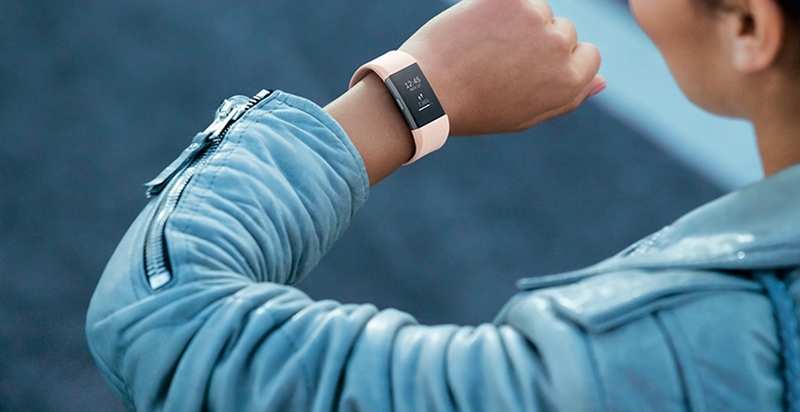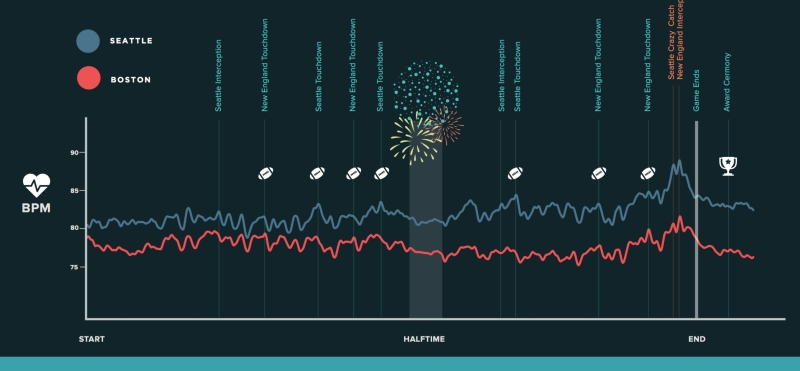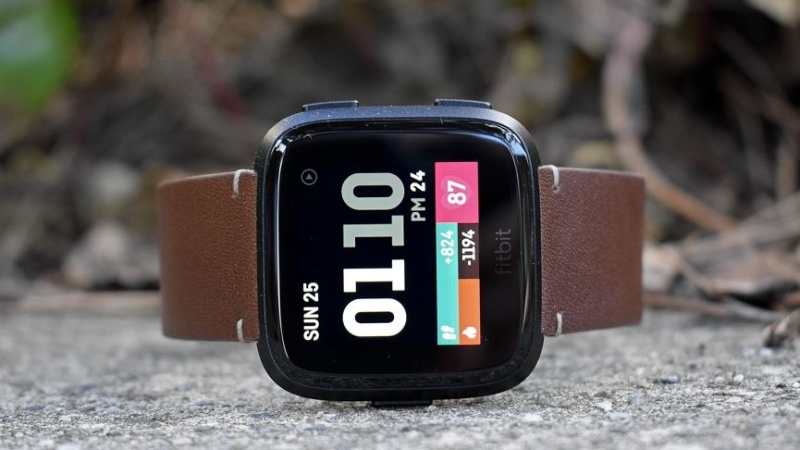Google's acquisition of Fitbit gives them biometric data of 30 million users, which is the real value in the purchase, but what will they do with it?
Thought your data on Fitbit was safe? Google just acquired Fitbit for $2.1 Billion [1], which is more than they purchased YouTube for 15 years ago ($1.65 Billion). Fitbit has nearly 30 million users in 2021 (29 million to be precise) [6], and this means a huge amount of biometric data.
Google had first stated its intentions to purchase Fitbit in November of 2019 [6]. Many users feared the acquisition due to privacy concerns with Google’s acquisition of their personal biomentric data, sleeping patterns, and exercise activity. With Google’s other acquisitions including Nest, Wave, and many others, there will not be many places left for people to hide from the Orwellian oversight of Big Tech.
Regulators around the world are concerned

Consumers are not the only ones concerned about Googles acquisition of Fitbit. The deal was delayed for over a year because many regulators were concerned about this acquisition both for reasons of what they would do with the data, as well as antitrust concerns, citing the possibilities that Google could use this data to further monopolize their position as a Big Data corporation and advertiser.
The European Union (EU), Australian, American (US), Mexican, Canadian, and Brazilian regulators have been concerned about this acquisition because, as a consumer advocacy group stated, “Google could exploit Fitbit’s exceptionally valuable health and location datasets, and data collection capabilities, to strengthen its already dominant position in digital markets such as online advertising” [2].
Antitrust attorney David Balto has been concerned about the monopolization of user data by Google. “It would be extraordinarily difficult to bring a case … There are no successful oppositions to vertical mergers like this”, he said in a statement [3].
The Verge wondered in response to the initial rumors of the now-completed acquisition, “What will Google do with data about your fitness activity and sleep patterns?” [2] After all, if Google has biometric data on 30 million people (and growing), what do they want to do with this data?
Google claims to care about customer data
Google’s Senior Vice President of devices and services Rick Osterloh said in a statement, “This deal has always been about devices, not data, and we’ve been clear since the beginning that we will protect Fitbit users’ privacy”. Google also pledged not to use the data for ads [4]. It’s clear then, that Google wants to use this data for something perhaps far more sinister than merely advertising.
It was only 6 months ago that Google was sued for $5 Billion [5] in a lawsuit in the U.S. for tracking ‘private’ internet use. So, sure, we believe that a company notorious for its constant stream of privacy violations has the best intentions in mind for keeping your biometric data safe. Like a cat has the best intentions for a mouse.
It would be delusional to think that Google paid $2.1 Billion dollars just to be able to sell Fitbit devices. We can deduce this clearly by looking at the numbers. Last year, Fitbit generated $400 million in profits. Technically this would place a valuation of 4 Billion, but it’s not so cut and dry. The problem is market share. Fitbit’s revenue has been on a steady decline since the fourth quarter of 2016.
Fitbit has been losing money & market share

Every quarter except for one since Q4 2016, fitbit been in the negative, with the worst decline over the previous year’s sales at a -69.63%. On average, with the exception of Q4 2017, Fitbit declined on average 27.495% quarter over quarter. This means that since 2016, fitbit has declined in profits 384.93% [6]. It’s a dying company. Moreover, the competitors, Apple and Xiaomi, started to overtake Fitbit in 2017, and have continued gobbling up more market share [7].
Fitbit continued to add users each quarter, up to the most recent 29 million users, but they continued to lose market share and revenue. This means that the value of the company is not in its ability to generate profit, as it’s been bleeding money – and a lot of it – for 3 years straights. Their added users, however, is where the real value remains, and this is why Google was willing to pay $2.1 Billion for a company that generates only $400 million per year in profits and is losing on average about 30% per year, with the exception of Q3 2020.
Moreover, Fitbit has a market cap of just $1.697 Billion and is declining. Incap says about their valuation, “The company valuation of Fitbit Inc. according to these metrics is way below the market valuation of its sector” and, “The (current) company valuation of Fitbit Inc. is therefore way below its valuation average over the last five years”, and, “The company valuation of Fitbit Inc. according to these metrics is way below the market valuation of its peer group” [8]. This means that on all fronts, Fitbit is not a desirable purchase from any investor interested in returning a profit in monetary terms.
The real value of Fitbit is Consumer Data
It’s clear then, that the real value is the consumer data, mainly the biometric data of its nearly 30 million users. Google paid $2.1 Billion to acquire Fitbit not because Google wants to sell Fitbits at a profit, but because Google sees the value in Big Data, and collecting the biometric data on 30 million users.
While Google may make some money off Fitbit, in reality they paid about double of the real valuation of the company, and did so at a considerable financial risk. Google is big enough to absorb the losses, though, because Google made this purchase with ulterior motives: in order to acquire the biometric data.
What is Google going to do with your data? We can only speculate, but it probably has something to do with the Internet of Things, the globalist agenda to control people through high-tech infrastructure and Big Data, improvements on AI tracking methodologies by using our data to teach Google’s AI how to track us better, and possibly even more nefarious purposes.

One such more nefarious purpose may be the manipulation of political events. As seen in the picture above, Fitbit has aggregated data of people during the superbowl. In a similar fashion, Google could sell biometric data to media companies who can then test which of their messages causes the most arousal. It would be rather easy for Google to send data on a specific date and time when the media pushed a particular message, and see how the people reacted to it by looking at their heart rates, sleeping patterns, and other biometric data.
In so doing, media companies and other nefarious parties could mine people’s data to make more compelling or more terrifying messages so that people comply with future mandates, lockdowns, and other political events. They could alter the course of a country’s history using manipulative media tactics by finding the messages that most arouse and terrify a people group to comply with new and more oppressive laws. This is a serious danger to the future of humanity.
One thing remains clear: as long as huge corporations with less-than-benevolent intentions control all our data, the world will continue to become darker, less free, and more tyrannical than ever. The real question is, are you willing to give up small everyday conveniences for the greater good? How about for your own future good? If not, then the only way to truly escape would be to create your own companies to compete with the monopoly tech giants.
Are you ready for 1984 yet? It’s here.
Sources:
[1] Google closes deal to buy Fitbit as U.S. Justice Dept probe continues | Reuters
[2] Consumer groups urge scrutiny of Google’s Fitbit buyout to regulators | CNET
[3] Why Google’s Fitbit acquisition will be tough to stop | Fortune
[4] Google says it’s closing the Fitbit acquisition without DOJ approval? | ARS Technica
[5] Google faces $5 billion lawsuit in U.S. for tracking ‘private’ internet use | Reuters
[6] Fitbit Revenue and Usage Statistics (2020) | Business of Apps
[7] Fitbit Gross Profit 2013-2020 | FIT | MacroTrends
[8] Market multiple valuation of Fitbit Inc. ( FIT | USA) | InFront Analytics





Please give me your info on who owns skype and ebay.
I’m striving to unplug from all that has that connection. Any other options are most welcomed
Thank you. Tina
Microsoft owns Skype. The major shareholders of eBay are here: https://www.investopedia.com/articles/insights/052716/top-4-ebay-shareholders-ebay.asp.
Telegram is a good alternative to Skype. There is no good alternative to eBay at this time.
How do I stop it when everyone thinks I’m the odd one because of speaking these things out?
I go on anyway but it’s apparent that I have a fog light upon me by it.
Many people cannot see the truth even if it is staring them in the face. No amount of evidence will prove to them, because they watch CNN and mainstream news which they believe is true, even though there is zero truth in mainstream media.
You should learn to discern the people who have no common sense from those few who do have the ability to use critical thinking. Then, you only share the truth with people who use critical thought.
You can test people with something simple like this, and if they think it’s not possible to believe the truth that Google wants to track everything you do, then make a mental note never to discuss anything real with them, keep them as acquaintances to say hi when you see them, but never talk anything real with them.